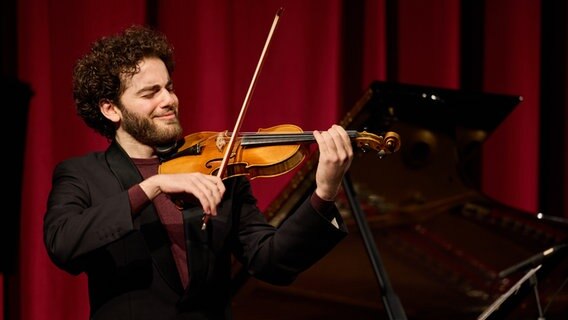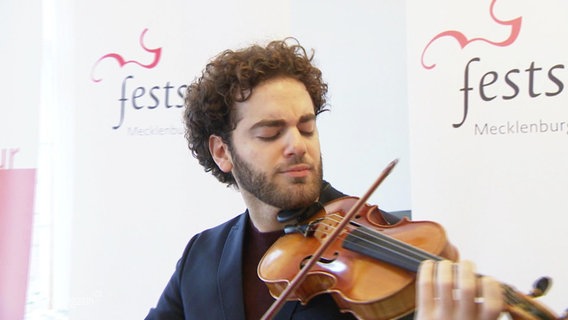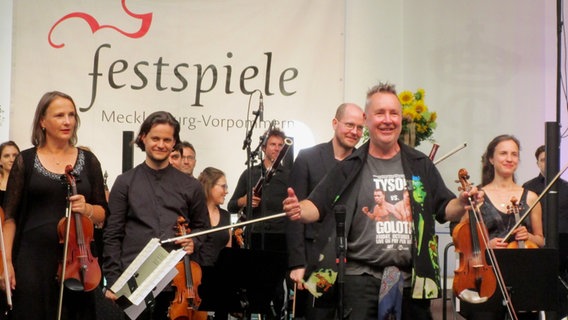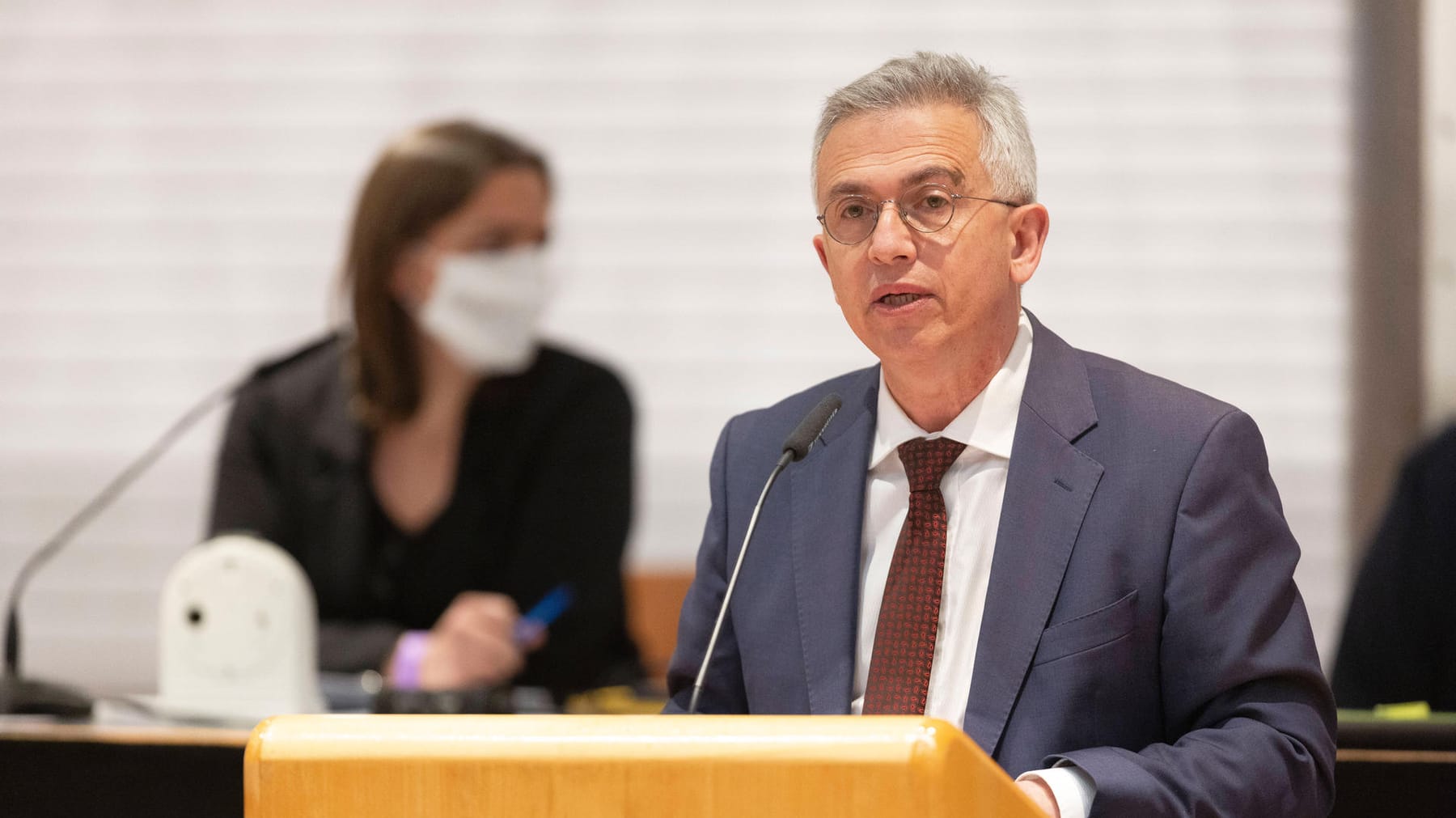Status: 01.06.2022 3:00 p.m
The young conductor and violinist Emmanuel Tjeknavorian is this year’s prizewinner in residence at the Festspiele MV. On June 18th he will play the opening concert in Neubrandenburg.
–
listen to post
12 Min–
In the Neubrandenburg Konzertkirche, the 27-year-old, who was born in Vienna, will play the Festival Overture for violin and orchestra “Noah’s Ark”, Jean Sibelius’ Violin Concerto and Edward Elgar. “Tjeknavorian shows witchcraft and Viennese charm” – that’s what the Austrian newspaper “Die Presse” once wrote about him, who will appear as a prizewinner in Resicence at numerous concerts in Mecklenburg-Western Pomerania.
Last November it was announced that this year you were the winner of the summer Festival Mecklenburg-West Pomerania will shape. How did you react?
Emmanuel Tjeknavorian: That was in Rostock. Dr. Markus Fein (the director at the time, dR) visited me in a hotel before a concert. We sat in the restaurant. Then he said very cautiously that there is always an artist who shapes the festival in summer. So I looked at him and thought, he’s going to say I’m going to be an artist in residence. And then the time had actually come. What more could you ask for than creating programs at a major festival and having great performance opportunities.
As an artist, you know numerous concert halls and stages around the world. Places such as the Rühn monastery near Bützow, Hasenwinkel Castle or the festival barn in Ulrichshusen are now waiting in Mecklenburg-Western Pomerania. Did you first need an atlas to know where you are performing?
Emmanuel Tjeknavorian: No, because I’ve played several times in barns and monasteries in Mecklenburg-Western Pomerania. I look forward to playing there again.
You were a guest at the Mecklenburg-Vorpommern Festival for the first time in 2017, together with the pianist Maximilian Kromer. At that time you both received the ensemble prize of the festival together. Was it actually love at first sight between you and the festival?
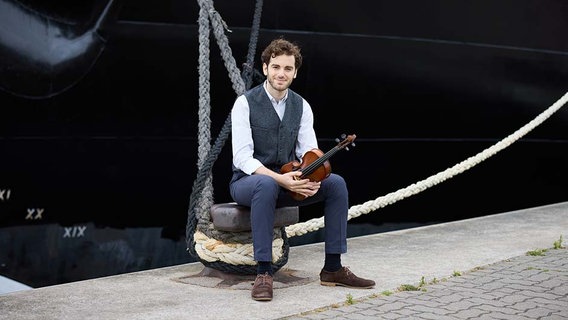
–
A young Viennese violinist is the 2022 prizewinner in residence at the Festspiele MV: Emmanuel Tjeknavorian.
–
Emmanuel Tjeknavorian: As far as I’m concerned, yes. But the first contact was in 2011. I was suggested for the “Young Elite” series and was not accepted. Of course I was very sad. But you have to have patience. I was then also motivated to continue and to show that I was a worthy artist for the “Young Elite” series. Then it happened six years later.
In your opinion, what is special about this festival here in Mecklenburg-Western Pomerania – how does the festival possibly differ from other festivals?
Emmanuel Tjeknavorian: I like the family very much. I like that Mecklenburg-West Pomerania is very welcoming. When you are there, the contact with the team, with the directorship, is very nice, very collegial and friendly. I have the feeling that even as a young artist you are treated in the same way as an established veteran star. When you feel comfortable, then the best artistic results come. For me, the festival is an artistic family.
They will also open the festival on June 18th in the Neubrandenburg Concert Church – together with the NDR Radio Philharmonic – with, among other things, Jean Sibelius’ Violin Concerto.
Emmanuel Tjeknavorian: That was a big wish of mine. I said that if I have the opportunity to open the Festival with an orchestra, then I must play “my violin concerto” – and that is Jean Sibelius’s. I started my career with this concert and have played it in public around 70 times in the last five years alone. This piece is a matter close to my heart. I’m happy to play this now with my colleague Andrew Manze, a former violinist.
For several years, the festival has opened with a specially composed overture. This year it will be composed by your father – conductor and composer Loris Tjeknavorian. Have you been able to listen?
Emmanuel Tjeknavorian: The overture is called “Noah’s Ark”. It is said that Noah’s ark ran aground on Mount Ararat. Mount Ararat is a sanctuary for all people of Armenian origin like my father. In this respect, he set this festivity, the stranding on Mount Ararat, to music. A wonderful overture, very virtuoso for the violin.
Further information
